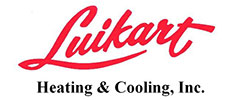
Ever done a double take when you viewed your last energy bill? While high energy bills can be the consequence of intense weather events, persistently high bills can quickly suggest an inefficient HVAC system or your home is misusing energy by other means, including drafty windows or inadequate insulation.
An easy way to determine whether your home is using too much energy is by getting a home service specialist to perform a home energy audit, also known as a home energy assessment. Keep reading to learn all about home energy audits, including what they are and their advantages.
What Is a Home Energy Audit?
An energy audit is a comprehensive inspection of how much energy your home consumes and whether – and where – your home may be losing or wasting energy. An inspector will take a look at past energy bills during an energy audit to figure out where energy is being consumed and how much.
The ultimate goal of an energy audit is to help homeowners save money on their energy bills by suggesting energy-efficient renovations, which may include exchanging your current HVAC system, adding new insulation, closing up leaks, or replacing drafty windows.
During the energy assessment, the auditor also completes an inspection of the outside and inside of your home. The auditor performs a blower door test on doorways, windows and fireplaces to figure out if there are air leaks in your home. They’ll also inspect your home’s HVAC system, which also includes the ductwork, the water heater, and the insulation in your attic. Exhaustive assessments could also include checking your current lighting system.
Benefits of a Home Energy Audit
It can be hard for the ordinary homeowner to be sure how efficient their home is versus other similar homes in their area. However, many energy companies often supply information about where your home is ranked in comparison to similar homes and whether it’s more efficient, about average, or inefficient in contrast with your neighbors’ homes. This is a good starting point to figure out if you need an energy audit performed.
Some of the benefits of a home energy audit include:
Recognizing How Efficient Your Home Is
It’s beneficial to learn more about how efficient your home is and where you’re using up the most energy. For example, if your ducts are leaking air, it could lead to a significant increase in your energy bills and additional wear and tear on your HVAC system as it has to run longer to properly heat or cool your home.
Making Energy-Efficient Improvements
An energy audit should reveal where you need to make energy-efficient upgrades to save on energy and decrease utility bills. This might include replacing old weatherstripping or buying a new energy-efficient furnace.
Improving Health and Safety
Enabling air to slip into your home via doors and windows, or because of a lack of insulation can cause unwanted moisture to build up, which could negatively impact your home’s humidity levels or produce mold. This can lead to health issues, especially for people dealing with asthma or allergies.
Raising Your Home’s Retail Value
Energy-efficient homes are preferred by homebuyers. You can sell your home sooner or for more money by telling potential buyers that it’s energy efficient.
How to Do an Energy Audit of Your Home
Although completing an energy audit independently may not be as thorough as calling a professional, it’ll give you a general idea of how energy efficient your home is. If you don’t find any flaws during the DIY test, then you likely don’t need to hire a professional. Follow this step-by-step checklist:
- Review your HVAC system. Leaky ducts can lose up to 20% of conditioned air, contributing to more expensive energy bills and excess wear and tear on HVAC equipment. If you notice leaks, use duct tape to seal them. If your HVAC equipment is old and inefficient, upgrading to a new system can save you a substantial amount on your energy bills. In some cases, it is better to call a reputable HVAC company to inspect your system.
- Look for air leaks. Air leaks on average can raise monthly energy bills by 10 to 20%. Inside, look for air leaks in areas where there is a draft, such as along the edge of flooring and near baseboards and electrical outlets. Outside, you can look for air leaks around the home’s foundation, siding and mortar. Plug, caulk or seal any air leaks to save money.
- Examine insulation. If your home is older, it could mean your insulation is too. If you can see the joists, you likely need more insulation.
- Check the ventilation. Ensure that all of your kitchen and bathroom exhaust fans are spinning properly, and look for evidence of rot or moisture.
Contact Luikart Heating & Cooling for a Professional Energy Audit
If you want professional help figuring out how energy efficient your heating and cooling equipment is, call the HVAC professionals at Luikart Heating & Cooling today. We’ve proudly served the residents of Newark with quality home services for a long time. Contact us today to set up an appointment.
